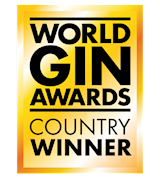Best Baltic Alcoholic Beverage Types
This beer style evolved from the British porter, and it was partially influenced by imperial stouts. The beers that fall under this category will typically have high alcohol content, usually between 5.5 and 9.5% ABV, while their color ranges from mahogany red to dark brown.
They are full-bodied and smooth brews with typical malt flavors that are usually complemented by aromas of toast, caramel, licorice, dried fruit, chocolate, and coffee. Baltic porter first appeared when stronger and hoppier versions of British porter were sent to Russia.
THE BEST Baltic Porter Ales
Kaimiškas Jovarų alus is a Lithuanian naturally-fermented beer. This homemade brew has been produced for centuries, following traditional recipes and methods that include grinding the malt, boiling the hops, mashing, lautering, fermentation and maturing.
What gives this beer its distinctive character is the unique yeast that is only used in the designated area and which is traditionally passed down through generations. The color of the beer can range from golden yellow to amber, while the flavor is strong, malty, nutty, herbaceous, and bitter.
Farmhouse ale is best described as an ancient beer style that was brewed by European farmers who used their grains and hops. These brews were made with techniques that are not used in modern brewing, and because they were brewed in various European regions, the examples are incredibly versatile and include a variety of different sub-styles that are usually very region-specific.
Farmhouse ales were made in places where people cultivated grains, and in the early 20th century, it was a prevalent style throughout northern Europe. These beers were a part of everyday life. In some places, they were prepared and enjoyed on special occasions, and in the regions where grains were plentiful, they were enjoyed on a daily basis.
VARIATIONS OF Farmhouse Ale
THE BEST Farmhouse Ale Ales
Stakliškės is a traditionally made mead product (an alcoholic drink made from fermented honey and water) produced in the city of Stakliškės in Lithuania. It is amber-colored and made with additives such as hops, juniper berries and lime blossom.
Its taste is sweet and sour, with an intense aroma and a typical flavor of honey. The alcoholic content of the beverage is produced solely by natural fermentation, and ethanol addition is strictly forbidden. The mead must is produced by mixing equal parts of honey and water.
This Latvian herbal liqueur is based on a combination of 27 different botanicals, including wormwood, valerian, black pepper, gentian, and ginger. The herbal infusion is later matured and mixed with honey and caramel. It is believed that the drink was first produced by a pharmacist named Kunze in 1752, and it was originally launched as the Real Kunze’s Riga Herbal Balsam.
The production of the liqueur was abruptly stopped during the Second World War, but it was later restored, and the drink is still produced following the original, secret recipe. This smooth and slightly bitter liqueur is best enjoyed neat, but it also incorporates well into cocktails and long drinks.
Translated from Estonian as old Tallinn, Vana Tallinn is an Estonian rum-based liqueur that was created by Ilse Maar. Although the recipe is kept secret, some of the flavorings include citrus oils, cinnamon, and vanilla. Classic version is produced in three varieties, which differ in alcohol content, the lightest (white label) with 40% ABV and the strongest (black label) having 50% ABV.
The first version of Vana Tallinn (red label) that was created in 1962 has 45% alcohol by volume. Apart from the standard versions, the brand also produces a variety of flavored cream-based liqueurs, as well as several special edition drinks. It is recommended to serve Vana Tallinn on the rocks or as an accompaniment to coffee, but the liqueur also incorporates well into cocktails and long drinks.
MAIN INGREDIENTS
Midus is a Lithuanian term used for traditional mead that is made with honey and water. The mead is fermented and is often enriched with various botanicals. It can range from dark yellow to dark amber, and it varies in strength. The taste is pleasant, with a distinctive honey aroma and flavor.
Mead production has a long and rich history in Lithuania, not surprising as it is probably the oldest drink in the world. Evidence suggests that it was already common during the Middle Ages, but the popularity declined in the 17th century when beekeeping and honey production became too costly, and the use of grains in the production of alcoholic drinks increased.
VARIATIONS OF Midus
Starka is an alcoholic beverage that is usually based on rye spirit. It dates back to the 15th century, and it is traditionally associated with Poland, Lithuania, and Belarus. Its origin is mostly connected to Polish noble families who would bury and age a distillate in wooden barrels to commemorate the birth of a child.
Starka was only consumed on special occasions, most commonly on the child’s wedding day. Nowadays, most varieties of this old drink are made from a rye distillate and a number of secret ingredients, while the best versions are still aged in oak barrels.
MAIN INGREDIENTS
Samanė is a pungent Lithuanian spirit distilled from rye, wheat, or triticale. The grains are mashed and fermented with baker's yeast before distillation. Samanė is a clear and colorless spirit, though it can attain a yellow or light brown hue if aged in oak.
The flavor and the aroma are grainy, reminiscent of dark bread. The spirit is twice distilled in copper stills, and no additional sweeteners and coloring or flavoring agents can be added, though aged varieties can be adjusted with caramel. The minimum alcoholic strength of samanė is 50% ABV.
Dainava is a Lithuanian liqueur made with a grain spirit and fruit juices (apple, rowanberry, cherry, cranberry or lingonberry, and blueberry juice). The resulting liqueur has a vibrant red color, fruity aroma, and a complex, bittersweet, subtly sour flavor.
The drink was created at the Stumbras distillery, and the production began in the1960s. The name refers to the historical Lithuanian region Dainava (Dzūkija), while the term Trauktinė refers to a traditional Lithuanian drink made with fruit and herbs.
Best Baltic Alcoholic Beverage Producers
AWARDS
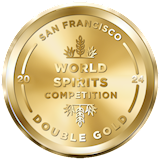
SFWSC - San Francisco World Spirits Competition - Double Gold
2024
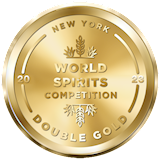
NYWSC - New York World Spirits Competition - Double Gold
2023
BEST STUMBRAS Spirits
AWARDS
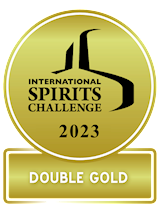
ISC-International Spirits Challenge - Double Gold
2023

IWSC- International wine & spirit competition - Spirit Gold
2020

World's Best Herbal - Winner
2024
BEST MV GROUP PRODUCTION Liqueurs
AWARDS
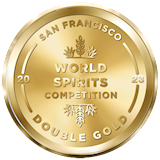
SFWSC - San Francisco World Spirits Competition - Double Gold
2024, 2023
BEST GINDOME Spirits
AWARDS

SFWSC - San Francisco World Spirits Competition - Double Gold
2024
BEST KRUPNIKAS Liqueurs
AWARDS
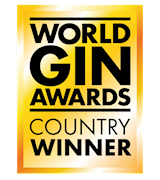
World Gin Awards - Country Winner
2024, 2021
BEST TOHI DISTILLERY OÜ Spirits
AWARDS
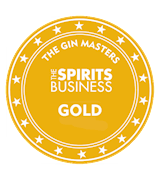
The Gin Masters - Gold
2022
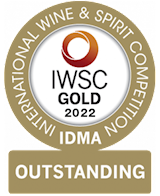
IWSC- International wine & spirit competition - Spirit Gold Outstanding
2022
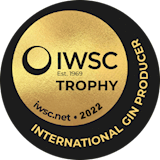
IWSC- International wine & spirit competition - Gin Gold Trophy
2022
BEST Junimperium Spirits
AWARDS
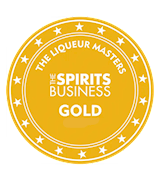
The Liqueur Masters - Gold
2023, 2022

The Gin Masters - Gold
2022

IWSC- International wine & spirit competition - Spirit Gold
2020
BEST Liviko Spirits
Saaremaa is a premium brand of spirits produced by the Saaremaa Distillery in Estonia. The brand is known for its high-quality vodkas and other flavored spirits, crafted using pure local ingredients from the island of Saaremaa. Saaremaa is part of the Anora Group, a leading Nordic and Baltic drinks company, which also owns several other well-known brands.
The distillery's products, including the iconic Saaremaa vodka, reflect the region's rich tradition of spirit production while incorporating modern distilling techniques. Through Anora Group's support, Saaremaa continues to expand its reach, offering a taste of Estonian heritage to the global market.
AWARDS

IWSC- International wine & spirit competition - Spirit Gold
2024

The Gin Masters - Gold
2022

The Vodka Masters - Gold
2022
BEST Saaremaa Spirits
Best Baltic Alcoholic Beverages
AWARDS

IWSC- International wine & spirit competition - Spirit Gold Outstanding
2022

IWSC- International wine & spirit competition - Gin Gold Trophy
2022

World's Best Sloe Gin - Winner
2021
AWARDS

World's Best Herbal - Winner
2024

World Liqueur Awards - Country Winner
2024
AWARDS

SFWSC - San Francisco World Spirits Competition - Double Gold
2024
AWARDS

SFWSC - San Francisco World Spirits Competition - Double Gold
2024
AWARDS

SFWSC - San Francisco World Spirits Competition - Double Gold
2024
AWARDS

SFWSC - San Francisco World Spirits Competition - Double Gold
2023
AWARDS

ISC-International Spirits Challenge - Double Gold
2023
AWARDS
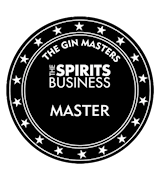
The Gin Masters - Master
2022
AWARDS

NYWSC - New York World Spirits Competition - Double Gold
2023
TasteAtlas food rankings are based on the ratings of the TasteAtlas audience, with a series of mechanisms that recognize real users and that ignore bot, nationalist or local patriotic ratings, and give additional value to the ratings of users that the system recognizes as knowledgeable. TasteAtlas Rankings should not be seen as the final global conclusion about food. Their purpose is to promote excellent local foods, instill pride in traditional dishes, and arouse curiosity about dishes you haven’t tried.







